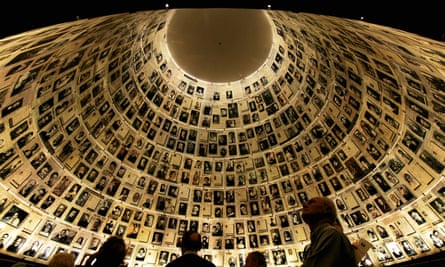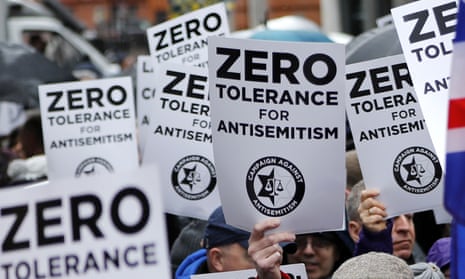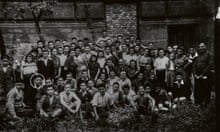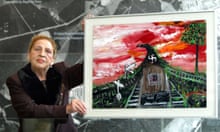In 1945, as the news of organised mass murder and gas chambers shocked the world, the far right’s dream of a fascist future was left shattered in the ruins of Berlin.
The horrors of the Holocaust became the primary roadblock to the resurrection of fascism’s besmirched ideology. Many on the far right believed then, as they do now, that if fascism was ever to rise again then the truth of the Holocaust had to be destroyed.
Since Germany’s military defeat in 1945, Holocaust denial has been an attempt by surviving unreconstructed Nazis and their postwar acolytes to whitewash the monstrous crimes of the Third Reich in the hope of rehabilitating the Nazi regime.
However, denial of the Holocaust has never been a monopoly of the far right. History has taught us that antisemitism arises in many forms, and this is no less true for Holocaust denial. That’s why Hope Not Hate’s new book also explores denial to be found in leftwing circles, in eastern Europe and from Muslims both in Muslim-majority countries and in the west as well.
Beyond considering contemporary political, religious and geographical dimensions to Holocaust denial, one of the key findings of the book is the worrying generational shift and the changing nature of far-right Holocaust denial engendered by the explosion of the internet.
Recognising the internet’s potential for reaching people at an unprecedented scale, Holocaust deniers were early adopters of online platforms, some as early as the 1980s. And since the 2000s social media’s arrival has had a profound impact, not just on the ability of the denial community to spread their ideas but more fundamentally on the idea of, and motivation for, Holocaust denial itself.
The good news is that in the past decade there has been a noticeable decline in influence of the traditional Holocaust denial movement, drawn from among a hardcore of far-right believers. The ageing scene has struggled to rejuvenate itself while many of its most prominent activists, such as David Irving, have become less and less active, or unable to fill the venues they once did, while other major figures such as the notorious French academic Robert Faurisson have died.
Even the powerhouse organisations of the denial movement no longer hold the sway they once did. The California-based Institute for Historical Review (IHR), for example, has continued to host conferences but the majority of such events in the west are small or else subsumed into other far-right gatherings, which do not exist to specifically emphasise Holocaust “revisionism”.

It has become clear that the traditional far-right Holocaust denial scene, striving towards pseudo-academic respectability amid increasing old age, has (thankfully) failed to attract new members because it has not positioned or organised itself in a way that is accessible and attractive to a younger audience.
However, Holocaust denial – and antisemitism more widely – are far from being in decline. Both are very much present in the modern far right and are central to the international far-right movement known as the alt-right.
For the new generation of online far-right activists that dwell on neo-Nazi websites such as the Daily Stormer or internet image boards such as 4Chan, the pseudo-intellectualism of traditional Holocaust denial is often now eclipsed by a style of deliberately subversive Holocaust “humour”. This “for the lulz” attitude is prevalent among the young, online far right. Where once deniers went to great lengths to scientifically “prove” the Holocaust didn’t happen, alt-right deniers are more likely to joke about it or even celebrate it.
A 2018 article on the Daily Stormer, for example, is titled: “Germany: British Woman Investigated for Denying Kooky Fake Shower Room Hoax”, typifying the casual way in which the alt-right engages with the Holocaust and antisemitism.
Similarly, recognising the changing dynamics of communicating Holocaust denial in the social media age, a thread on the website’s forum called “How would you debunk the Holocaust in 140 characters or less?”, was started by a user last year.
Another fundamental difference between the nature of the alt-right’s denial and the denial of more traditional far-right movements is the lack of importance placed on the Holocaust. For many traditional far-right antisemites, the Holocaust represented the primary obstacle to the resurrection of their fascist creed. However, as a result of the increasing distance from the second world war and the young age of many alt-right activists, some perceive the Holocaust as ancient history.
This view is typified by a number of tweets from the American antisemitic conspiracy theorist and white nationalist Mike Peinovich (aka Mike Enoch), noted for promoting the PizzaGate conspiracy theory, published on the UK’s Holocaust Memorial Day in 2018: “Here’s the thing Jews. Real or fake, I don’t give a fuck about the holocaust, mmmkay. #HolocaustMemorialDay”
For many young far-right activists the Holocaust is shorn of historical significance, diminished by time and absent from their collective consciousness, as it was not for previous generations throughout the postwar period. Far-right Holocaust denial is changing and if we are to be ready to fight back against those who seek to rewrite history for their own political ends, we have to understand how they are trying to do it.









